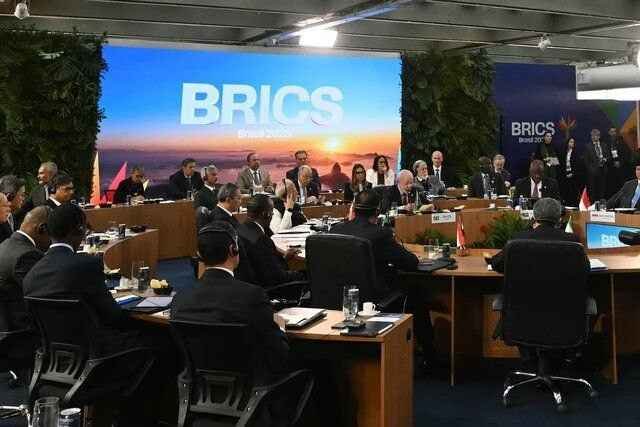Rio de Janeiro: The 17th BRICS Summit concluded in Rio de Janeiro with a strong collective call for urgent and comprehensive reform of the United Nations Security Council (UNSC), aimed at making it more reflective of contemporary global realities and more inclusive of the Global South.
Adopting the Rio de Janeiro Declaration, the leaders of Brazil, Russia, India, China, and South Africa reaffirmed their commitment to transforming the UNSC into a more democratic, representative, effective, and efficient body.
This push for change comes amid growing global consensus that the current structure, largely unchanged since the aftermath of World War II, no longer adequately reflects the geopolitical and economic balance of power in the 21st century.
Voice for the Global South
The BRICS bloc emphasized the need to increase the representation of developing countries in both permanent and non-permanent categories of the Council. The leaders stated that only a reformed and inclusive Security Council would be capable of effectively addressing today’s complex international peace and security challenges.
“The reform of the United Nations Security Council will lead to the amplified voice of the Global South,” the declaration affirmed, underscoring the demand for more equitable global governance structures that prioritize inclusivity and fairness.
The leaders stressed that a reformed UNSC must better respond to the interests and concerns of developing nations, many of which have historically been underrepresented in the decision-making processes of the UN’s highest body.
The call comes at a time when developing countries are increasingly asserting their influence on global issues ranging from climate change and debt relief to food security and conflict resolution.
Support for India and Brazil
The BRICS nations reiterated their longstanding support for the aspirations of Brazil and India to assume more prominent roles within the United Nations, including a potential permanent seat on the Security Council.
“India and Brazil, as major developing countries with global influence, have legitimate aspirations to play a greater role in the United Nations, including in the Security Council,” the leaders noted.
This endorsement is in line with BRICS’ broader agenda of democratizing global governance institutions and reflects the growing weight of emerging economies in shaping international norms.
Longstanding Demand
The demand for UNSC reform has been a consistent feature of BRICS communiqués over the past decade, but the tone of this year’s declaration was notably more urgent. Analysts suggest this shift reflects a growing frustration with the slow pace of reform, as well as increased geopolitical tensions and the perceived erosion of multilateralism.
Currently, the Security Council comprises 15 members, five of whom—China, France, Russia, the United Kingdom, and the United States—hold permanent seats with veto power. The remaining 10 are elected for two-year terms. Critics argue that this structure is outdated and fails to represent the majority of the world’s population, particularly in Africa, Latin America, and Asia.
Brazil’s Leadership Role
Brazil, which hosted this year’s summit, has been a vocal advocate for UNSC reform. President Luiz Inácio Lula da Silva used the summit to push for stronger alignment among developing nations in demanding more equitable global governance. He emphasized that strengthening multilateralism must begin with reforms at the heart of the UN.
“Without the inclusion of emerging powers and the voice of the developing world, no international institution can claim legitimacy,” President Lula stated in his plenary address.
The Road Ahead
Despite the unified stance of BRICS, actual reform of the UNSC remains a daunting challenge. Amendments to the UN Charter require not only a two-thirds majority in the General Assembly but also the approval of all five permanent members of the Security Council—a hurdle that has stalled reform efforts for decades.
Still, the Rio Declaration adds weight to the growing chorus of nations demanding that international institutions evolve to reflect the present-day world order rather than the post-1945 status quo.
As the BRICS grouping continues to expand its influence on global economic and political issues, its calls for UNSC reform are likely to gain further traction. Whether this momentum translates into concrete change, however, remains to be seen.








